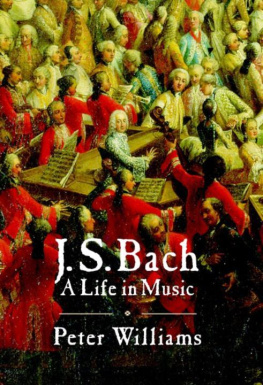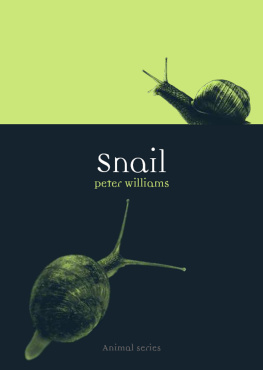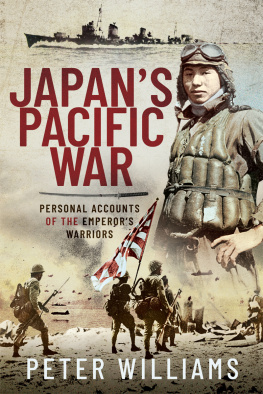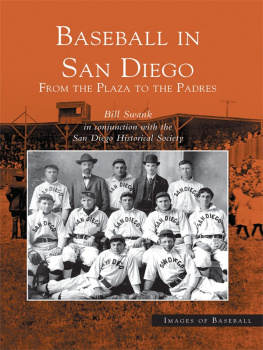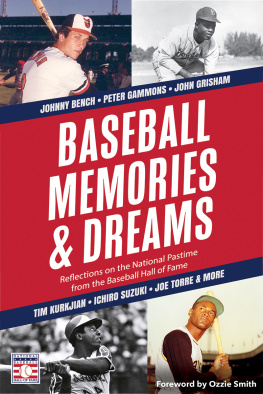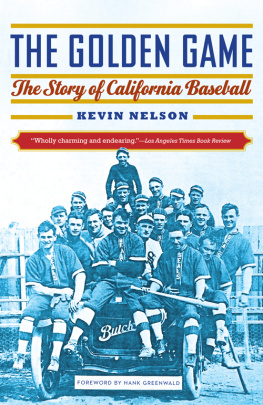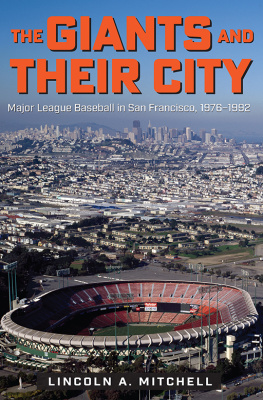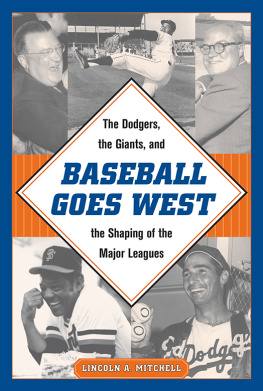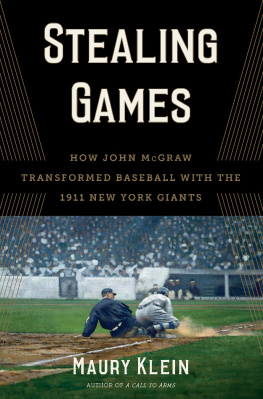Also by Peter Williams
The Joe Williams Baseball Reader
WHEN THE GIANTS WERE GIANTS
Bill Terry and the Golden Age of New York Baseball

by Peter Williams
with an introduction by W. P. Kinsella
ALGONQUIN BOOKS OF CHAPEL HILL
Published by
ALGONQUIN BOOKS OF CHAPEL HILL
Post Office Box 2225
Chapel Hill, North Carolina 27515-2225
a division of
WORKMAN PUBLISHING COMPANY, INC.
225 Varick Street
New York, New York 10014
1994 by Peter Williams. All rights reserved.
Library of Congress Cataloging-in-Publication Data is available.
E-book ISBN 978-1-61620-237-8
for
Joe Williams and Bill Terry

a couple of
tough-minded Memphians
who should have been
better friends
CONTENTS
PART I
Memphis Bill
PART II
The Last Years of the Little Napoleon
PART III
A New Deal at the Polo Grounds
PART IV
Nice Guys Finish Last
ILLUSTRATIONS
Following page 129
ACKNOWLEDGMENTS
Id like to thank the following people and organizations for their generous help: in Atlanta, the Georgia Department of Archives and History, Joe Gerson of the Georgia Hall of Fame, Franklin M. Garrett and Frank Wheeler of the Atlanta Historical Society, and that citys fine senior sports writer, Furman Bisher; in Memphis, the management of the Peabody Hotel, Jerry Armour of the National Cotton Council, the volunteers at St. Lukes Episcopal Church, the Rev. Lewis McKee and, in the area of formal research, Ed Frank of the Mississippi Valley Collection at Memphis State University, Patricia La Point of the Memphis Collection at the Memphis-Shelby County Library, and Mike Freeman for access to his thesis on Clarence Saunders; elsewhere in the country, Bruce Rubenstein of the University of Michigan at Flint, the Hollywood actress Ruth Terry and some more first-rate sports journalists, Red Barber of Tallahassee, Bob Broeg of St. Louis, Fred Russell of Nashville, and Larry Ritter and Bill Bloome of New York. I also want to acknowledge the crucial help of two of the most dedicated editors around, Louis D. Rubin, Jr., who was as much parent as obstetrician to this book, and Robert A. Rubin, who nursed it through infancy.
As grateful as I am to all of the above, however, my deepest thanks have to go to the following men: Hal Schumacher, who complained about the stench of Cy Youngs cigars, then immediately said, Boy, did you see that home run Bo Jackson hit yesterday?; Ted Williams, who interrupted our outdoor conversation to fire at a bird with an imaginary rifle (I could hear the bird, but I couldnt see it); Harry Danning, who made me turn off my tape recorder whenever he told a shady joke (they were pretty funny, too); Joe Moore, who was a little irritated at his doctor for telling him maybe he shouldnt rope and tie his own cattle anymore; Buddy Hassett, who went way out of his way to do me a personal favor (I still owe him a beer); Bob Thomson, who never complained when my over-affectionate hound shed hair all over his dark suit, and whose wife passed on her recipe for foolproof meringue; Al Lopez, who acted out the game in which he caught the hog-calling Pea Ridge Day, and who seemed actually to be back in Ebbets Field during the demonstration; John Mize, who filled me in on both the stinginess of Branch Rickey and the hilarious baseball life of Johnny King; Clydell Castleman, who says Whitey Ford stole his nickname (Slick); the cheerful San Francisco announcer and ex-Terryman, Joe Orengo; Edward Doc Marshall, who, like so many of Terrys Giants, became a very successful businessman; Billy Herman, who pointed out that even the players who didnt like Terry always respected him; Terry Moore; Mel Harder, Bob Feller, and Denny Galehouse, whose memories of barnstorming with the Giants are both vivid and affectionate; Babe Phelps, who along with many other people, misses the Brooklyn of Ebbets Field; Dick Bartell, who loved Terry; Rube Fischer, who didnt; Alex Kampouris and Lonnie Frey who admit they still cant stand Bartell; Don Gutteridge; Bill Lohrman, who used to go to the movies with Ott and Hubbell (Bill would always wind up sitting with Carl, because Mel insisted on marching all the way up front); Bill Jurges, who not only survived encounters with George Magerkurth and an enraged and pistol-packing woman, but even a couple with Bartell; Bob Seeds, a man of few words; Harry Gumbert, who noted that, when Dizzy Dean got in trouble, he threw faster, but when Hubbell got in trouble, he slowed up; Frank Crosetti, who figures his hit against Fitzsimmons in the 1936 Series was good and clean; Bill Dickey, who says his hit against Hubbell in the 1934 All-Star game was also clean, but modestly insists he was lucky; Burgess Whitehead, who thinks he, Terry, and the Giants did not do badly at all in that 1936 Series; Harry Craft, who graciously thanked me for contacting him; Leo Durocher, who was among the many people who couldnt believe Terry was as fast a runner as he was; and Bill Terry, because he didnt hesitate to pick up the lunch check.
INTRODUCTION
by W. P. Kinsella
Could the magnificent New York Giants teams of the Twenties, with Bill Terry as a player, and the perhaps-even-greater Giants of the Thirties, with Terry as manager, step onto the grass at Candlestick Park today and compete with the best of them? Without a doubt. Bill Terry would hit the ball in the gap, while Carl Hubbell would have present-day baseball players lunging hopelessly at his screwball.
There is no other team sport where this premise is applicable. In football, basketball, and hockey, teams from as late as the 1960s and 1970s would be humiliated by their present-day counterparts. These games have become more sophisticated, the players larger and faster. But Hubbell or Christy Mathewson would be twenty-game winners today, and Bill Terry would still hit over .300. Current players might have a slight advantage in the field, but the Giants of the Golden Age would give todays Braves a run to the wire.
That continuity with todays game is one reason why Peter Williams When the Giants Were Giants will appeal to baseball fans, baseball history buffs, and lovers of excellent storytelling. The book chronicles the life of New York Giants superstar Bill Terry, the last National Leaguer to hit .400. But it is far more than a biography. It is the story of two erasthe Roaring Twenties and the Dirty Thirties.
The career of Bill Terry is a vehicle for the reader to travel through the boisterous, high-living Twenties, a time when a star like Terry could hold out and win against the likes of John McGraw and Giants owner Charles Stoneham. Then came the dark days of the Depression. Strangely, the popularity of baseball did not decline. People may not have been able to afford to go to the park as often, but they followed the game closely in the newspapers and by means of that new phenomenon, radio.
Memphis Bill Terry is also interesting as one of the first major-league players who created a life for himself outside baseball. By finding stable employment with Standard Oil, he became invulnerable to scheming and penny-pinching owners, who even in good times cried poverty and perennially underpaid their players. Terry seems to have been born understanding supply and demand. More than once he told owner Stoneham and manager McGraw he would quit baseball if he wasnt properly compensated, and because he had other work to fall back on, he meant it. Those of us who have tried to live off of what we can earn from our art can sympathizethough he loved baseball with a passion, he considered it, first and foremost, a way to make a living, and he demanded that he be properly compensated. Art for arts sake, or baseball without a dignified salary, was not for Bill Terry.
Next page


